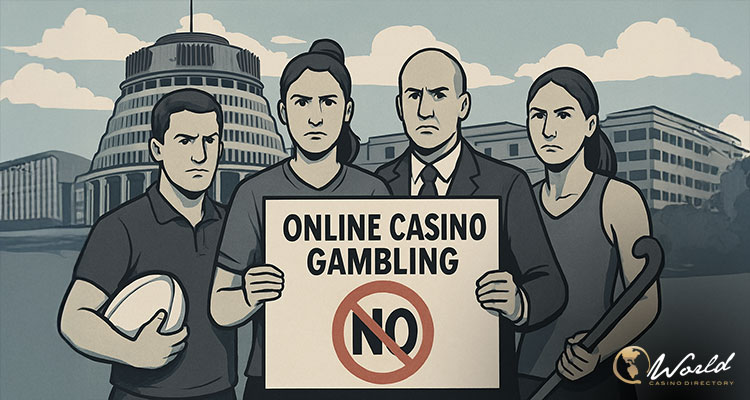More than 50 of New Zealand’s top sporting bodies have come out in strong opposition to the Government’s proposed Online Casino Gambling (OCG) Bill, arguing that it places vital community sport funding in jeopardy. The legislation, introduced by Internal Affairs Minister Brooke van Velden in June, aims to establish a licensing system for up to 15 offshore online casino operators. While the bill passed its first reading with an 83-39 vote, sporting leaders fear it may dismantle a long-standing funding model that grassroots sport depends on.
Currently, approximately NZ$170 million is granted to amateur sport annually through gaming trust revenue generated by pokie machines. None of this funding supports professional teams or athletes. Critics argue the bill does not include any obligation for new online licensees to contribute back to the community, a stark contrast to the existing arrangement.
Critics Point to Lack of Consultation and Potential Fallout
Cycling New Zealand Chair Martin Snedden has been one of the most vocal opponents, warning that the proposed legislation threatens to undo decades of support for local sports. As reported by The New Zealand Herald, speaking to Newstalk ZB, he said, “This is a crazy move by the Government. Sport has thrived for decades off the back of community gambling grants. It all goes to clubs, not professional sport.”
Snedden also criticised the Government for pushing ahead without prior engagement with the sports sector. “There had been no consultation with the sport sector, no warning that this was coming. As soon as I saw it, I recognised the extent of the risk to community funding,” he said.
He highlighted that local clubs are already grappling with rising operational costs, shrinking sponsorship opportunities, and less support from financially strained local authorities. “Sport thrived off the back of that – at the moment, sports are really struggling with the economic environment, accessing sponsorship money’s impossible. Local Governments are naturally pulling back because they’re in financial trouble themselves, there’s a whole confluence of economic problems,” Snedden said in a separate statement.
Push for Community Funding Clause and Political Reconsideration
Snedden is urging ministers to revisit the bill’s framework and reintroduce provisions that would mandate community contributions from licensed operators. “The Government should be saying to the international operators, you are going to be contributing if you want to operate in New Zealand,” he stated. “Part of the reason you’re allowed to do so is that part of your money is going to be going into community and that’s a good thing.”
He further added: “The Prime Minister, the Minister of Sport, Mark Mitchell, the Associate Minister of Sport, Chris Bishop, they all love sport dearly. I’m sure they’re not going to allow something to go through that is ultimately going to have a dramatic negative impact on the future of community sport.”
Although van Velden acknowledged these concerns, she defended the bill’s primary purpose, stating: “New Zealanders can legally access thousands of offshore gambling websites. But the market is unregulated, so there are no player safety standards or oversight of harm minimisation.”
She added, “My intention with this bill is to ensure that online gambling is safer for New Zealanders who wish to gamble online to do so. In addition, that companies providing this service contribute to tax revenue and funding the services that treat gambling harm in New Zealand.”
However, van Velden clarified that the bill does not currently include requirements for licensees to support community organisations, noting that such an approach could create a “perverse incentive.”
Still, with more than 30 sports groups uniting in public protest and warning of serious downstream effects, pressure is mounting on lawmakers to reconsider the financial implications for community sport before the auction process for online licenses begins next year.
Public submissions on the bill will close on August 17, providing a brief window for concerned citizens and organisations to voice their positions.


